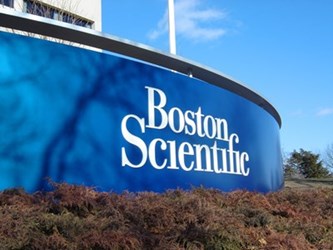Boston Scientific Gets CE Mark For Vercise PC Deep Brain Stimulation System
By Jof Enriquez,
Follow me on Twitter @jofenriq

Boston Scientific announced recently the CE Mark designation for its Vercise Primary Cell (PC) Deep Brain Stimulation (DBS) System for patients suffering from Parkinson's disease (PD), primary and secondary dystonia, and essential tremor. Vercise PC is a non-rechargeable system that complements the company's rechargeable device in its new DBS portfolio.
"The dual portfolio offering of a non-rechargeable system with current steering as well as a rechargeable system provides physicians and patients the ability to choose a platform that suits their needs while benefiting from the most advanced stimulation technology," said Prof. Dr. Volker Coenen, medical director of Stereotactic and Functional Neurosurgery, University Medical Center Freiburg, in a press release.
DBS therapy involves the surgical placement of a device that uses electric currents to stimulate certain areas of the brain, particularly the subthalamic nucleus (STN), in the treatment of advanced Parkinson's disease.
According to Medscape, current DBS systems consist of one electrode implanted in each hemisphere of the brain, with each electrode having four contacts, and a bulky pulse generator implanted in the chest. In comparison, an electrode in the Vercise system has eight contacts, with each contact having the ability to be programmed individually to suit a patient's plan of therapy.
"The first-generation DBS devices are limited somewhat by the potential for side effects caused by electrical stimulation to areas of the brain near to the target zone," said Professor Lars Timmermann, MD, University Hospital Cologne, who was lead author of the VANTAGE study, to Medscape. "This limits the dose of electrical stimulation that can be given. With the new system we can minimize current in certain areas and maximize stimulation in other areas to obtain a full clinical effect."
In the release, Boston Scientific claims that the Vercise system's eight-contact Directional Lead with multiple independent current control technology (MICC) increases target efficiency by controlling the size and shape of stimulation, as demonstrated in the first-in-man study of the Vercise device in Europe.
According to results published in The Lancet, the Boston Scientific-sponsored VANTAGE trial showed that the company's "multiple-source, constant-current, eight-contact DBS system suppressed motor symptoms effectively in patients with Parkinson's disease, with an acceptable safety profile."
Specifically, the Vercise DBS system showed 62.4 percent improvement of motor function in participants as assessed by Unified Parkinson's disease rating scale part III (UPDRS III), according to a summary by Boston Scientific.
"This new system exemplifies the Boston Scientific commitment to advancing DBS therapy and providing impactful and transformative technology to reach a broader range of patients suffering from these debilitating diseases," said Maulik Nanavaty, senior VP and president, Neuromodulation, Boston Scientific, in the release. "Our clinical evidence, unique software solution, and expanded portfolio, now with both rechargeable and non-rechargeable devices, enable physicians to provide their patients with a tailored solution."
The non-rechargeable Vercise PC DBS System is not available for use or sale in the United States. Its counterpart, the rechargeable Vercise DBS System, is investigational in the U.S., and is currently being evaluated in the INTREPID Study.
